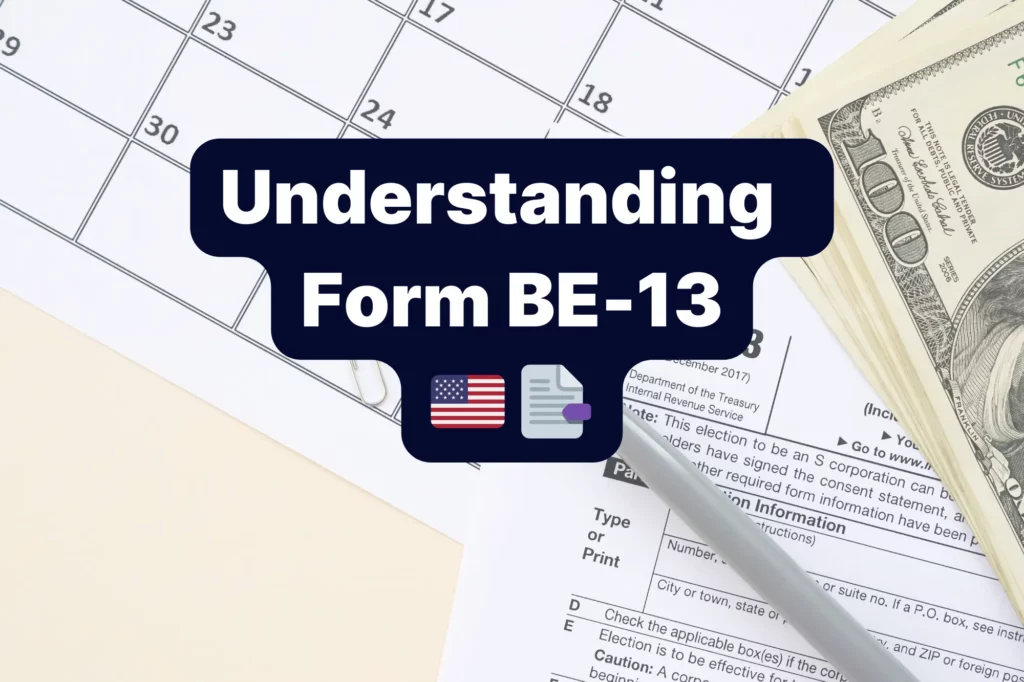The Ultimate Guide: Launching Your E-Commerce Dream in the USA as a Non-Resident
The United States remains a powerhouse for e-commerce, offering unparalleled market access and growth potential. If you’re a non-resident entrepreneur looking to tap into this lucrative market, you’ve come to the right place.
This guide will walk you through the crucial steps of establishing and running a successful e-commerce business in the US, covering everything from company formation to navigating the complexities of US taxes. And while the journey might seem daunting, with the right guidance, you can achieve your entrepreneurial dreams from launching an online store to offering professional services like business card print for other businesses.
1. Laying the Foundation: Company Formation & Business Structuring
Before you start selling, you need a legal entity. Choosing the right business structure is paramount as it impacts your liability, taxation, and administrative burden.
Understanding the Options: LLC vs. Corporation
The two most popular options are Limited Liability Companies (LLCs) and Corporations (specifically, C-Corps). LLCs offer pass-through taxation and simplified management, making them a good choice for smaller businesses or those just starting out. Corporations, on the other hand, can raise capital more easily and may be preferable for future growth and investment, especially if you plan to seek venture capital. Carefully consider your long-term goals when making this decision. An LLC can provide you with liability protection without the complexities of corporate governance, allowing you to focus on growing your business. Corporations are better suited for companies that need to raise capital through the sale of stock. They also provide more tax planning opportunities. Explore resources at https://www.usa.gov/business for additional information on business structures. Consider reading our previous blog posts such as “Which State is Best for LLC for Non-Residents?“, “Why You Should Form An LLC?” for further clarification.
Choosing Your State: Delaware and Beyond
Delaware is a popular choice due to its business-friendly laws, established court system specializing in corporate law, and perceived prestige. However, other states like Wyoming and Nevada offer advantages such as lower fees and greater privacy, depending on your specific needs. Consider where your customers are located, as that can impact your choice. Wyoming is particularly attractive for its low costs and anonymity provisions, while Nevada offers a favorable tax climate. Delaware, with its Court of Chancery, is often preferred by venture capitalists and larger companies.
Beyond the Basics: Registered Agent and Operating Agreement
Don’t forget the essentials! You’ll need a registered agent located in your chosen state to receive official documents, and while not always legally required, a well-drafted operating agreement (for LLCs) or bylaws (for corporations) is crucial for outlining ownership, responsibilities, and decision-making processes. This can prevent disputes down the line. A registered agent acts as your official point of contact with the state, ensuring you receive important legal and tax notifications. An operating agreement clearly defines the roles and responsibilities of the members in an LLC, which can prevent disagreements and misunderstandings. Think of the registered agent as your company’s official mailman, and the operating agreement as the company’s constitution.
Clemta Can Help: We can assist with the entire company formation process, including choosing the right structure, registering your business, obtaining your Employer Identification Number (EIN), and providing registered agent services.
2. Essential Financial Infrastructure: Banking & Payment Processing
Once your company is formed, you’ll need a US bank account and a payment processing solution to handle transactions.
Navigating the Challenges of US Banking for Non-Residents
Opening a US bank account as a non-resident can be challenging, but it’s essential for managing your finances, especially for tax purposes. Look for banks that cater to international businesses and offer online banking services, wire transfers, and multi-currency support. Some banks may require an in-person visit to open an account. Research your options thoroughly. Banks like Mercury and RelayFi are designed specifically for startups and offer online account opening. Traditional banks like Bank of America and Chase also have international business banking divisions. Explore banking regulations and requirements at https://www.federalreserve.gov/.
Selecting the Right Payment Gateway for Global Customers
Integrate a reliable payment gateway like Stripe, PayPal, or Authorize.net to accept payments from your customers. Ensure the gateway supports international transactions and currencies, offers robust fraud protection, and integrates seamlessly with your chosen e-commerce platform. Also, consider the fees associated with each gateway. Stripe is known for its developer-friendly API, while PayPal is a trusted brand with global recognition. Authorize.net is a more traditional gateway that integrates with many accounting software packages. Selecting the right gateway will streamline your financial operations.
Clemta Can Help: We can guide you through the process of opening a US bank account, preparing the required documentation, and setting up payment processing with leading providers.
3. Navigating the US Tax Landscape: EIN, ITIN & Tax Filing
US taxes are complex, especially for non-residents. Understanding your obligations is crucial to avoid penalties and maintain compliance.
Understanding Your EIN: The Foundation of US Tax Compliance
Your EIN is your business’s tax ID and is required for filing taxes, opening a bank account, and hiring employees (if applicable). Obtain your EIN as soon as your company is formed. The IRS uses the EIN to identify your business for tax purposes. Without an EIN, you won’t be able to open a business bank account or file your business tax returns. This is a critical step in setting up your e-commerce venture. See our blog posts: “EIN Letter From IRS: Everything You Need to Know“, and “What Is EIN? How To Get It?“.
ITIN: When You Need One and How to Get It
If you don’t qualify for a Social Security Number (SSN), you may need an ITIN to file personal taxes. The ITIN allows you to report income to the IRS and comply with US tax laws. Understand the eligibility requirements and application process. You will need an ITIN if you have income that is subject to US taxes but you do not qualify for an SSN. The IRS provides detailed instructions on how to apply for an ITIN on their website. This is an essential requirement for compliance.
Sales Tax Nexus and Collection: A State-by-State Maze
Understanding sales tax nexus and obligations is crucial, especially if you’re selling online. Sales tax laws vary by state, and you may be required to collect and remit sales tax based on where your customers are located (economic nexus). This can become complicated very quickly. Economic nexus means you have a significant economic presence in a state, even if you don’t have a physical location there. This can be triggered by exceeding a certain sales threshold or number of transactions. Staying on top of these regulations will save you potential legal and financial penalties down the road. Check out our blog post “Sales Tax Nexus Simplified: Your Essential Guide to Understanding Nexus Laws” for more info.
Federal Income Tax: Understanding Your Obligations
It is important to have an understanding of the federal income tax obligations. Refer to our blog post “Federal Tax – Ultimate Guide“. Failing to understand federal tax obligations can lead to penalties, it’s worth investing time and effort into understanding it.
Franchise Tax: Don’t Overlook This Annual Fee (If Applicable)
Do not forget to understand your obligations regarding franchise tax to prevent any problems. See our blog post “What is Franchise Tax?” Franchise tax is often overlooked, leading to unexpected costs.
Pro Tip: Investing in accounting software will help you manage your finances, track your expenses, and file your taxes accurately and on time.
Tax Filing: Accurate and Timely Filing is Key
US businesses need to file tax returns, depending on their business structure (e.g., Form 1040 for individuals, Form 1065 for partnerships, Form 1120 for corporations). Understanding the deadlines and requirements is critical. The IRS provides detailed instructions on how to file your tax returns on their website. Filing accurately and on time will help you avoid penalties and maintain good standing with the IRS.
Clemta Can Help: We offer comprehensive tax services for e-commerce businesses, including EIN application, ITIN assistance, sales tax nexus assessment, tax preparation, and filing.
4. E-commerce Platform & Operations: Building Your Online Store
With the legal and financial aspects in place, it’s time to build your online store and start selling.
Choosing the Right E-commerce Platform: Shopify, WooCommerce, or Marketplace?
Select a platform that suits your needs and budget. Popular options include Shopify, WooCommerce, Etsy, and Amazon. Consider factors such as ease of use, customization options, scalability, and transaction fees. Shopify offers a user-friendly interface and a wide range of apps, while WooCommerce is a flexible open-source platform that integrates with WordPress. Etsy is great for handmade and vintage items, while Amazon offers access to a massive customer base. Weigh the pros and cons of each platform carefully. You can find more info on our blog; “Step-by-Step Guide for Starting Your Shopify Store“, “How to Start an Etsy Shop with Clemta“.
Product Sourcing & Inventory Management: Dropshipping vs. Holding Inventory
Decide how you will source your products (dropshipping, wholesale, manufacturing) and manage your inventory. Each method has its own pros and cons in terms of cost, risk, and control. Develop a system for tracking inventory levels and fulfilling orders efficiently. Dropshipping allows you to sell products without holding inventory, while wholesale involves purchasing products in bulk at a discounted price. Manufacturing gives you more control over product design and quality. Consider your budget, storage capacity, and risk tolerance when choosing a sourcing method.
Marketing & Sales: Driving Traffic and Converting Customers
Develop a marketing strategy to attract customers to your store. This could include SEO, social media marketing, paid advertising (Google Ads, Facebook Ads), email marketing, and content marketing. Focus on building a strong brand and providing excellent customer service. SEO (Search Engine Optimization) helps your website rank higher in search results, while social media marketing allows you to connect with your target audience. Paid advertising can drive targeted traffic to your store, and email marketing can help you nurture leads and build customer loyalty.
Clemta Can Help: Visit our blog to learn more about “Requirements for an Amazon Seller Account” and “Benefits of Incorporating in the US for Amazon Sellers“.
5. Protecting Your Brand: Trademarking
A trademark can protect your brand name, logo, and other identifying marks. It grants you exclusive rights to use your brand in connection with your products or services, preventing others from using similar marks that could confuse customers. Securing a trademark is a proactive step in safeguarding your business’s identity and reputation in the long run. A strong trademark can deter competitors from using your branding, increasing your brand’s recognition in the marketplace. More detailed information about registering a trademark can be found at https://www.uspto.gov/trademarks.
6. Insurance and Risk Management
Protect your company from financial loss resulting from damage or injury for which you are found to be legally responsible.
General Liability Insurance
Protect your company from financial loss resulting from damage or injury for which you are found to be legally responsible. General liability insurance is a common type of policy for businesses, covering common accidents.
Product Liability Insurance
Specifically protects your business from lawsuits caused by defective products that cause bodily injury or property damage. Product liability insurance is important, especially if you are in the manufacturing sector.
7. Compliance with Regulations
Make sure you are in compliance with all state and federal regulations regarding e-commerce sales. Staying compliant can reduce liability from the government.
Partner with Clemta for US E-commerce Success
Starting an e-commerce business in the US as a non-resident can be a complex process, but with the right support, you can overcome the challenges and achieve your goals. Clemta offers a comprehensive suite of services to help you navigate the intricacies of US business formation, banking, taxes, and more. We handle the behind-the-scenes tasks so you can focus on growing your business. Contact us today to learn how we can help you launch your US e-commerce venture.







